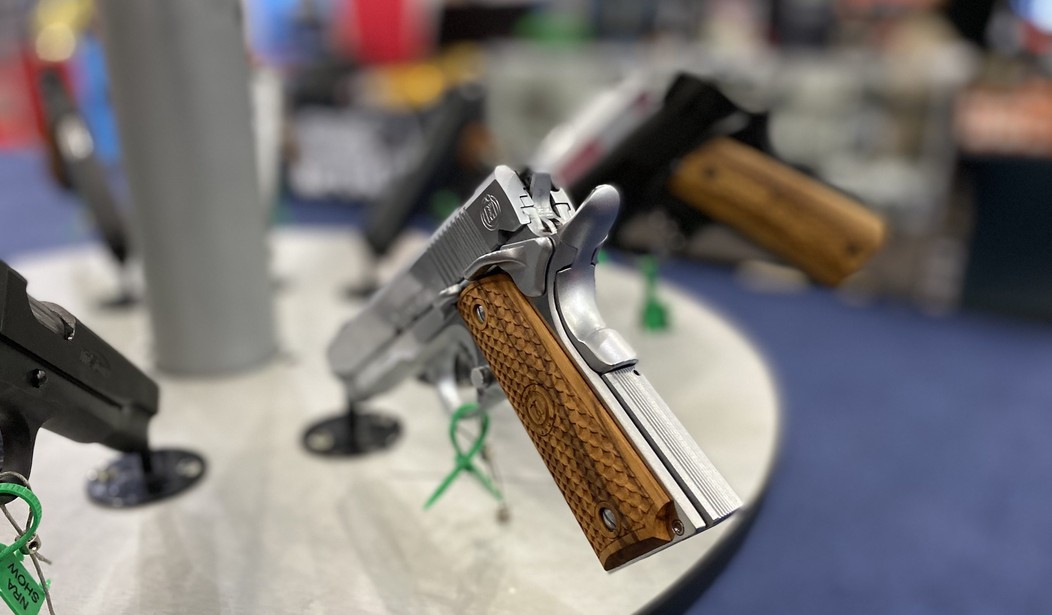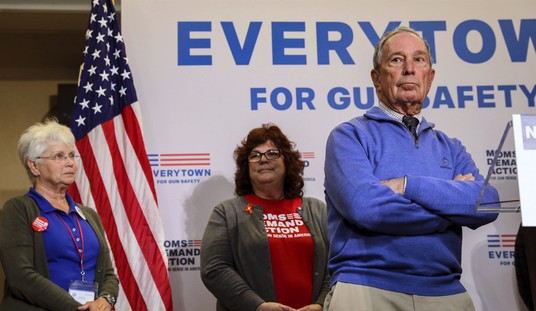Back in August, the Rutgers NJ Gun Violence Research Center released their “2022 Report on Firearms in New Jersey”. The twelve page document was not overly complicated or inflated with pseudo intellectual gobbly gook. The focus of the report were the answers delivered by the thousand plus participants who responded to a series of questions. After giving the report a thorough read, I reached out to Dr. Michael Anestis, the Executive Director of the Center, to connect with him on what he thought was most meaningful in the findings.
Last year Anestis and I discussed similar matters when I reported on the “Safe Storage Map” that the center put together. Something Anestis said to me then, which he also parroted during our conversation was that “You don’t have to agree on everything, to agree on anything, is the bottom line.” The statement is important because Anestis is well aware of my critical view of the center he’s the Executive Director of. The Gun Violence Research Center was born from the administration of Governor Phil Murphy, who has shown nothing but contempt towards the law abiding gun owner. Myself, along with many New Jersey Second Amendment supporters, look at the center as a tool that Murphy will use politically…why else would he have created it?
The report had a rather large focus on how respondents store their firearms. I did ask Anestis if the questions were leading, or targeting any particular statute in New Jersey law. Some of the findings noted the following on the storage habits of those polled:
The large majority of New Jersey firearm owners always or nearly always store firearms with a locking device (e.g. cable lock) in place, but approximately 15% never or only occasionally do so.
Over half of all New Jersey firearm owners always store their firearms in a locked location (e.g. a gun safe), but approximately 1 in 4 never does so
The large majority of New Jersey firearm owners never store their firearms loaded, but 1 in 5 always or nearly always do so.
New Jersey firearm owners vary widely in their tendency to store firearms within reach of ammunition. The more quickly an individual can access ammunition, the greater the odds of intentional or unintentional firearm injury or death.
Just over 70% of New Jersey firearm owners never store their firearms in their vehicles
More than 10% of New Jersey firearm owners always store firearms in their vehicles. This can increase the risk for firearm theft and firearm-involved road rage incidents.
The answer that Anestis gave me was that there was no particular law the questions were geared towards addressing, just that “We’re just asking what people do.”
A person not as familiar with the laws in New Jersey might find some of the findings to be jarring, regardless of the high instance of safe storage methods used. There is a storage law in the state, but it actually leans on commonsense, rather than forces all people to comport to one way of doing things. NJ Rev Stat § 2C:58-15 (2021) states:
1. a. A person who knows or reasonably should know that a minor is likely to gain access to a loaded firearm at a premises under the person’s control commits a disorderly persons offense if a minor gains access to the firearm, unless the person:
(1) Stores the firearm in a securely locked box or container;
(2) Stores the firearm in a location which a reasonable person would believe to be secure; or
(3) Secures the firearm with a trigger lock.
This is not a legal interpretation nor legal advice, but to a bachelor that has no one else living with them, storing a handgun in a nightstand could be a perfectly legal thing to do. While that’s not something that I’d personally advocate for, nor teach my students, I, unlike the legislators in New Jersey, understand that there is no one size fits all solution to safe gun storage.
This rhetoric is important because of the repeated times that Governor Phil Murphy has pushed the legislature to pass an onerous and unconstitutional bill on firearm storage. In short, the Murphy way of doing things would require all firearms to be stored unloaded, locked up, with ammunition in a separate locked container. Not only would that measure go against some of the very things that were challenged in Heller, such a provision would not be able to survive scrutiny under NYSRPA v. Bruen. We’ll have to wait and see if any of the findings from this report end up coming out of Murphy’s, or the civil liberty hating legislators that’ll be doing his bidding, mouths.
When speaking from a suicide prevention perspective, Anestis notes that storing a firearm in a manner many would find impractical does assist in yielding better results, but he does concede there’s credence to the counter argument.
But then the issue is, if someone owns that same firearm for personal protection, the counter argument is, well, what if somebody breaks in in the middle of the night, and I don’t want to have to fiddle with a lock, or I don’t have to then load the firearm after I get it unlocked, when that person is already coming in armed and ready to go, right? And so this is the scenario, or the set of scenarios people are balancing out. And what I find often is that folks’ concern about someone breaking in is higher than their concern about suicide, death, or unintentional shooting…are the other sort of things that I obviously tend to focus on more, right? And that’s a personal decision for sure.
…
Is it a destiny for someone who stores their firearm loaded on their bedside table, that something bad’s gonna happen? No, of course not. Right? And most firearm owners aren’t suicidal and never will be. The issue that comes up from my side of things is that people often don’t know about risk until it’s there.
Something that I brought up to Anestis that’s worth mentioning is one of the findings in the study concerning race. The instances of the number of people that refused to answer questions based on race were interesting. The latino population had the least number, with zero refusing to answer questions. Whites clocked in a little over 4%, and not surprising to me, Blacks a little over 8 %, the highest demographic to refuse to answer questions. I asked Anestis if he thought it may have something to do with the racist origins of nearly all our so-called gun control laws. He did not take that bait, but did offer up an equally compelling hypothesis that fits historically and is a cousin to my own musings.
I think that there is a pretty good long history within the Black community of being fairly mistreated by scientists and researchers asking about personal issues, and firearm ownership is a pretty personal topic for a lot of folks. And so I wasn’t completely surprised that a community that has been, quite frankly, mistreated by folks in positions like mine historically, maybe didn’t want to talk about it.
I asked Anestis what he thought the biggest takeaway was from the study, what he found most meaningful. He mentioned that the statistic that only 1 in 10 of those polled who answered that their doctor or physician has ever asked them about firearms was shockingly low, in particular for New Jersey. Anestis and I diverge in our thinking on this grossly. I, like many, make the case that not only is it not in the wheelhouse of a doctor to ask such questions, but that the medical field has time and time again continued to prove to be hostile to lawful firearm ownership. Anestis mentioned that the physician’s office is a good arena to have the conversation, because it’s a place that’s nearly universally utilized by all.
I did wrongly bring up the statistic that anywhere from 400,000 to 1.5 million deaths are annually caused by mistakes that doctor’s make. The statistic is 400,000 +/- 200,000 deaths are annually caused by mistakes that doctor’s make. That was not a line of discourse that we were about to have, but none-the-less, that does not make what I’m saying without merit. If all these doctors were so concerned with saving lives, they ought to look within and get their own houses in order before moving onto what I’d personally consider a boundary violation. Further, something that has been explained by Dr. John Edeen from Doctors For Responsible Gun Ownership, has to do with whether or not insurance carriers are aware that physicians are giving advice on anything firearm related at all, aka, outside their scope of practice.
What if someone takes prohibitionist advice from a doctor and stores their firearm unloaded, locked in a box, with the ammunition separate in another locked container, and that individual is not able to defend themselves or their family? Would the doctor be on the hook for such liability? And would their insurance cover them? What if there was the loss of innocent life?
Annually firearms are used defensively to save lives up to an average estimated 1 million instances. This unprovable fact often goes ignored. There’s also a staggering number of so-called mass shootings that are halted annually by armed citizens. These lives saved are rarely lauded, if ever discussed by establishment medicine. A good way to gain a little credibility and respect by the Second Amendment crowd could include public statements applauding situations where lives are saved by firearms by those in the medical profession.
Anestis did mention that new findings that freshly rolled out the day of our conversation do point to perhaps physicians not being the best arena for conversations on firearms to occur. The study references someone in a peace officer role being more well suited to act as conduit for any information. I would not say the conversation fell short, as it was a long chat, however, we did not explore the idea that firearm instructors do have the most pivotal role to play here. If physicians and the medical field as a whole were able to just stick to the facts and eventually gain the trust of Second Amendment supporters, perhaps their best course of action includes referring patients to trusted firearm instructors to consult with. Anestis mentioned online informational sites, where people can be both anonymous and take in content at their own leisure.
Most genuine on the subject, Anestis did quip on the topic:
That might be a middle ground on this where it isn’t the medical professionals doing all the talking, they can just direct them [(patients)] to an online tool that folks do privately on their own. Right? And so maybe, because what I’m looking at isn’t that I think medical professionals are the firearm experts…Of course they’re not. I mean, maybe if they’re firearm owners they are. Right? But they’re not by virtue of being a doctor or a medical professional. It doesn’t make you a firearm expert, obviously, I think we can all agree on that. So the idea isn’t that we want…is that I want medical professionals to ask me about this, because they are the most knowledgeable, and well equipped to do this. It’s just that I want a place where everybody goes.
The topic of physician involvement is one of the many chasms that are going to separate Anestis from myself ideologically. At least it seems that way for the foreseeable future. I could just as soon offer up the Department of Motor Vehicles as an arena where everyone goes, and firearm safety information could get handed out.
I asked Anestis what his message is to the New Jersey gun owner about the center and their aim. For starters, Anestis did say that he does want to hear from gun owners and the way to reach out to the center best would be via email at: [email protected] . Beyond that he left me with the following:
It’s always best to sort of judge people based on your interactions with them, and what they do. And I know that’s kind of a vague thing. But I was a real fish out of water for most of my career. And so I’ve spent most of my time working exclusively with gun owners. And I’ve come to really enjoy it. And I know a lot of other folks like me who do the same and, and my center’s mantras, we talk to everyone, and we aren’t a political entity, and we’re not here to alienate anyone, and that you’re certainly not going to solve gun violence without gun owners. And so that is a mantra, a mantra that we are inflexible on and nobody’s been resistant to. We’ve got room to talk to everybody, we’re open to everyone’s perspectives, our primary and sole goal is to lower the number of people who are injured and hurt. And from a suicide prevention perspective, that’s more than half the suicide deaths, right? So like, the firearms are a big part of the conversation, not because we hate firearms, not because we’re trying to, you know, overturn the Second Amendment, or impact anybody’s rights…just because we want people to be safe. That’s it. And so it’s, I would encourage folks, if they want to see things done differently, to engage with us, and, you know, maybe they won’t want to, and that’s okay, or maybe they’ll think I’m a prick, and that’s fine, too. But maybe there’s room for us to have a really productive conversation and work together, because I would much rather gun owners’ voices be reflected accurately in the work we do, then for gun owners to feel like we’re talking about them without them?
I do appreciate the time that Dr. Anestis gave me while entertaining my questions. While the full scope of our conversation is not contained within this article, much of the kernel of our discussion has been embodied within. I’m looking forward to seeing some reports in the future that perhaps reflect some of the talking points form our conversation, with research looking closer at why the optics are the way they are concerning discussing firearms with physicians, or covering the household makeup in those homes that store firearms in a manner that’s not locked one way or another? Maybe in the future we’ll see some research that reflects the personal nature to there being hardly a one size fits all approach to most of these topics? But until then, I’ll remain hopeful that Governor Murphy does not utilize any of the center’s data as a weapon against the law-abiding gun owner, nor uses the center’s creation as a talking point as he’s eyeing a run for the White House. The proof will eventually be in the pudding.
If you’d like to hear a full recording of my conversation with Dr. Michael Anestis, the Executive Director of the New Jersey Gun Violence Research Center at Rutgers, you can check it out in the embed below or by clicking HERE.








Join the conversation as a VIP Member